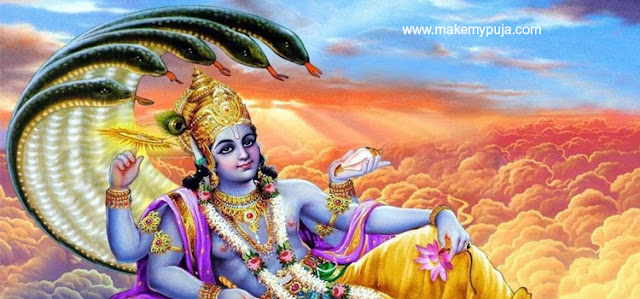‘Ekadashi’ in Sanskrit means “eleven”. Therefore, the
eleventh day of every month in the Hindu calendar is referred to as Ekadashi.
Every Hindu month is split into Shukla Paksha (bright fortnight) and Krishna
Paksha (dark fortnight), which is why Ekadashi falls twice in every month; thus
making it 24 Ekadashis every year. These Ekadashis are of very high importance
for Hindus. Out of all the 24, it is Apara Ekadashi, falling in the second half
of the Jeshtha month, that holds the greatest significance. The word ‘apar’ in Hindi implies “limitless”, thus
it is believed that one who fasts on this day achieves limitless benefits. Apart
from unlimited benefits, one who fasts on this day is also freed of all his
sins and attains moksha. This is why
this Ekadashi is considered highly auspicious by Hindus across the globe. Apara
Ekadashi is known by various names like Achala Ekadashi, Badhrakali Ekadashi,
Vaishaka Vadi Ekadashi, and Jalkrida Ekadashi across different states of India.
Legends associated
with Apara Ekadashi
During the Treta Yug,
there was a king named Bali who was highly victorious in all his battles. Due
to his immense success and power, he started turning arrogant. His arrogance
soared to such great heights that he forced Lord Indra to abandon Heaven. Lord
Indra approached Lord Vishnu, pleading for help, who then took the avatar of
Lord Vamana and disguised himself as a Brahmin to confront King Bali. He
requested King Bali for three paces of land. Upon consent, Lord Vamana enlarged
his feet to gigantic proportions and took all of the Heaven, Earth, and
Netherworld under his feet. King Bali realized his mistake and asked for
forgiveness.
Another legend depicts the time when King Yudhishtira had
lost all his titles and riches in a game, and was facing grave humiliation. He
then sought guidance from Lord Krishna who asked him to observe fast on Apara
Ekadashi so that he would be blessed with profound fame and riches, along with
being freed from his past misdoings and attaining moksha. Since then, the Apara Ekadashi fast is being observed by
Hindus who believe in Karma and reincarnation of souls.
Rituals of Apara
Ekadashi
People observe fast during Apara Ekadashi – some abstain
from grains and beans, while others consume only milk and fruits. Then there
are others who observe total fasting wherein they consume neither food nor
water for the entire day. Devotees offer Puja or Yagna, and pray to Lord Vishnu
on this day. The fast is broken the next day after sunrise.
As per Hindu scriptures, it is said that observing fast on
this sacred day is equivalent to taking a bath in the holy River Ganga during
the auspicious month of Kartik. It is also equivalent to the holy actions of
donating cows. Therefore, Apara Ekadashi fast is the path of removing darkness
of one’s sins from his life. Falling on 22nd of May this year, it is
recommended that you too observe this fast to attain fame, wealth, success, and
moksha. However, if fasting is not
your cup of tea, another alternative is worshipping Lord Vishnu by performing a
Satyanarayan Katha with the assistance of MakeMyPuja Pandits, as Satyanarayan
is also one great form of Lord Vishnu.
Website: https://www.makemypuja.com/

No comments:
Post a Comment